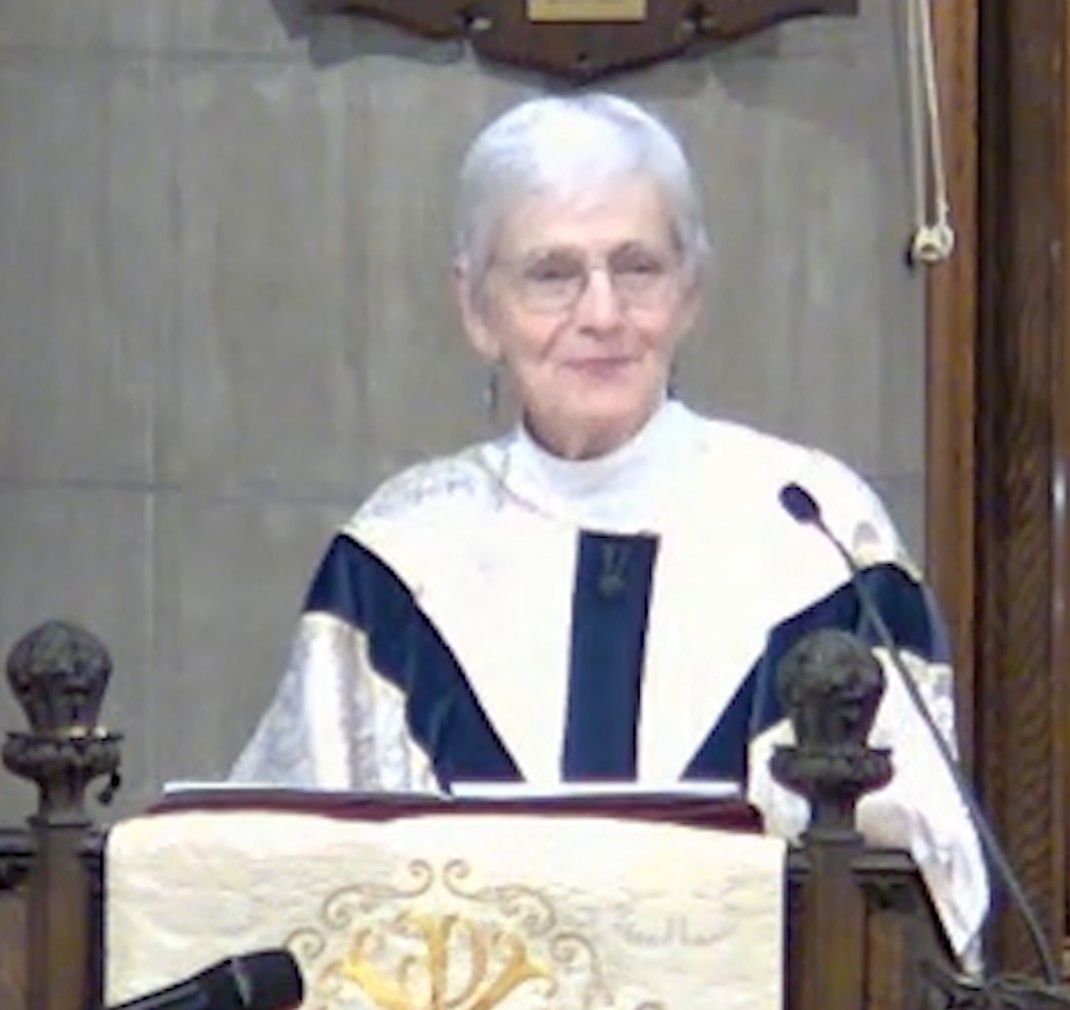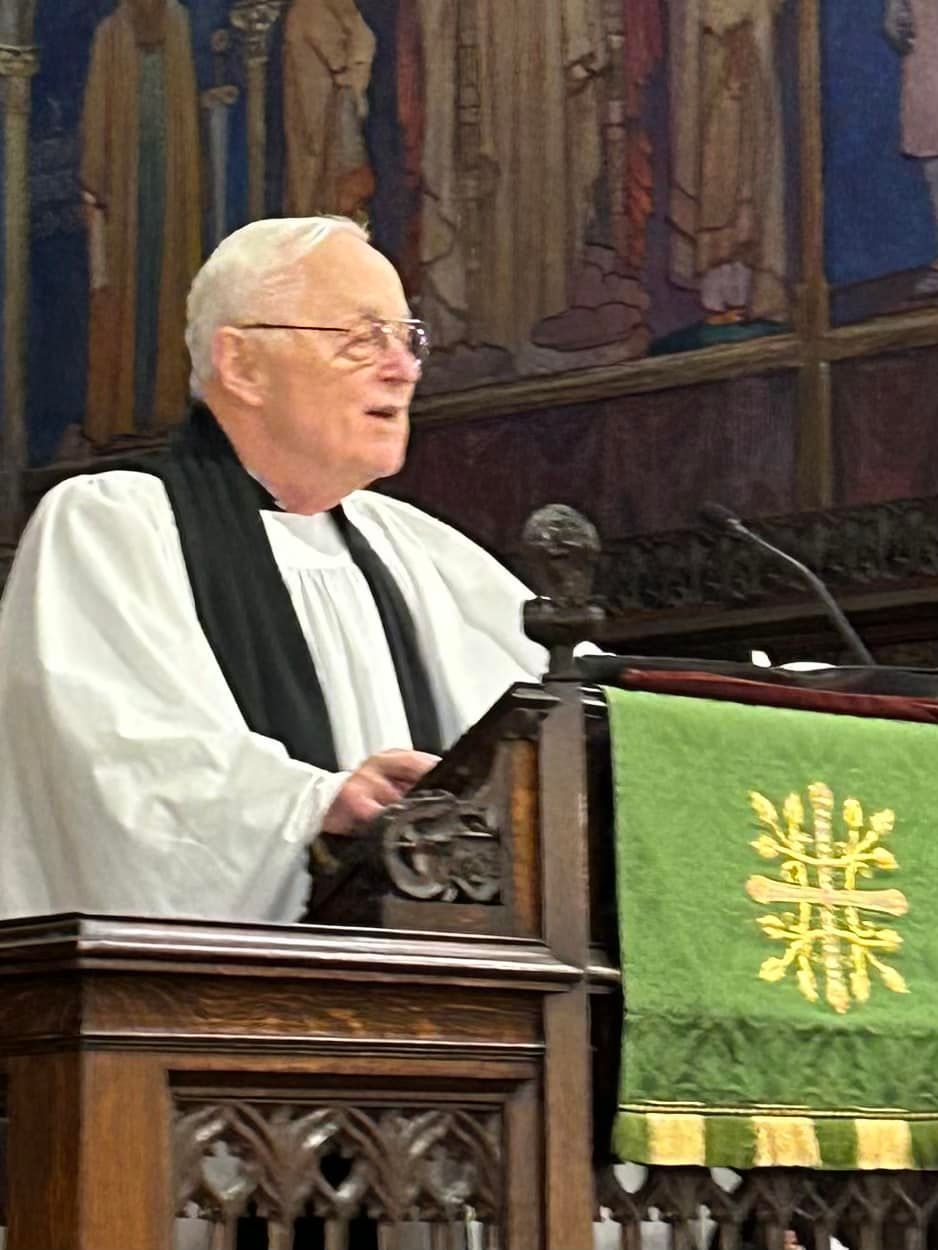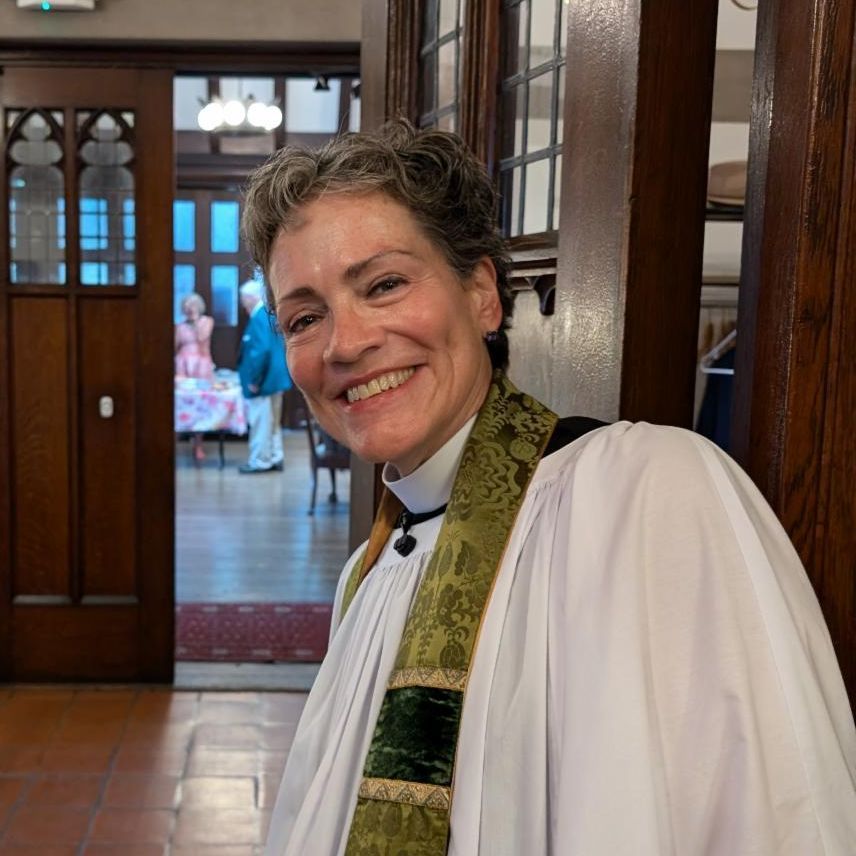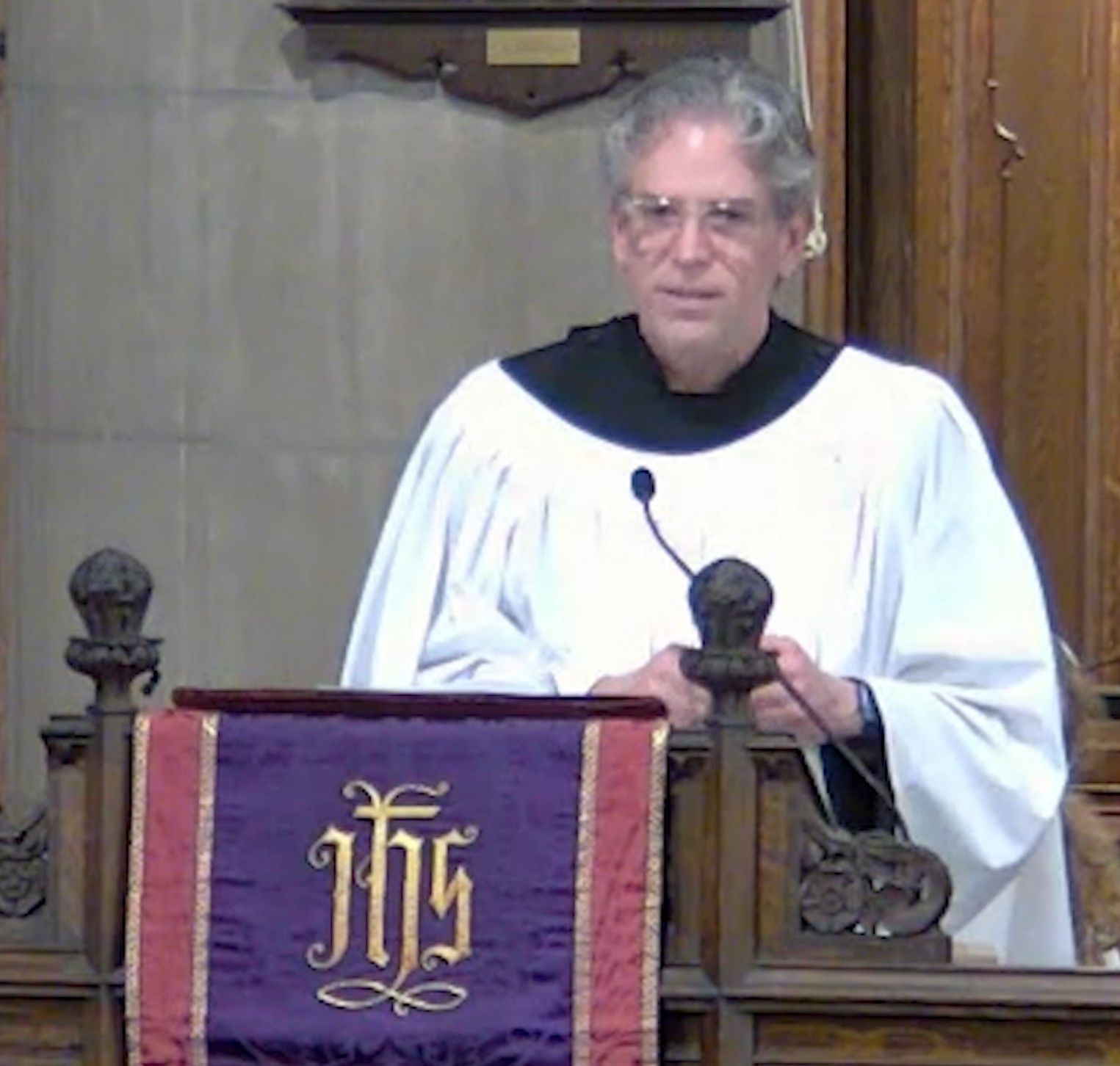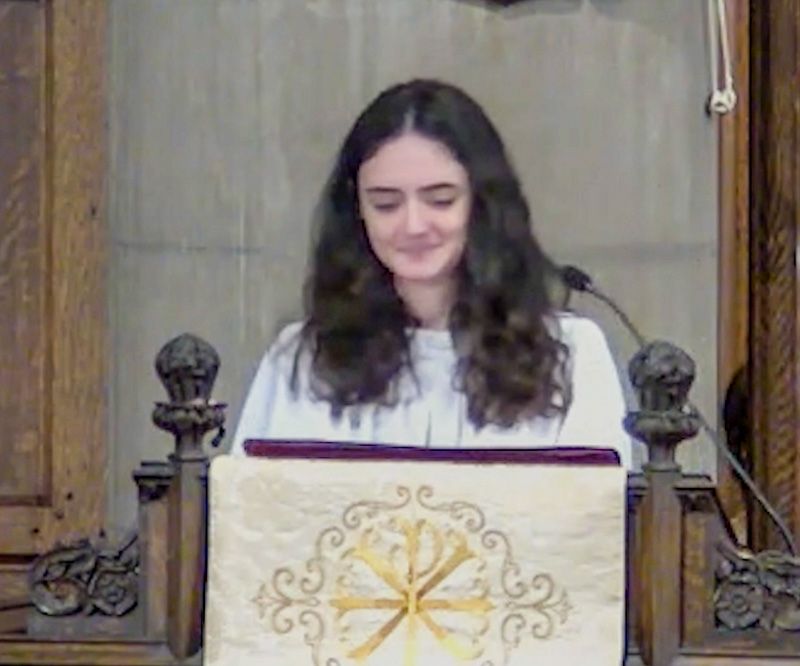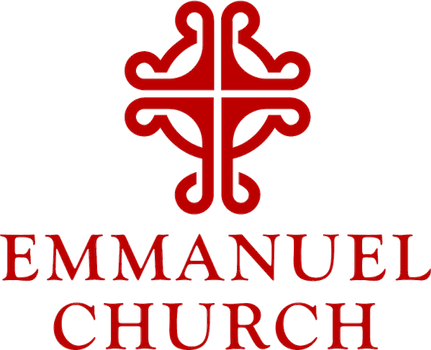Pentecost 3
Take Off the Shoes of Your Voice
I’ve been thinking a lot about language over the past few weeks. Jere and I have been traveling, as you know — to northwestern Tanzania, with stops on the way in Amsterdam, Mount Kilimanjaro, Kigoma, and Dar es Salaam, then on to Zanzibar for a few days to recuperate at the end. In addition to languages — English, Dutch, and Swahili — we traveled through regional accents and dialects, both in New England and Tanzania. You know Newporters speak American English differently from Bostonians, and Jere’s Southern voice stands out anywhere in New England. Similarly, the Swahili near Lake Tanganyika is influenced by different tribal languages and dialects than the trade-focused Swahili spoken in Dar es Salaam and Zanzibar.
And even when we speak the same language we often speak it in different ways, with different emphases and meanings, reflecting our own histories, backgrounds, and lived experiences. For example, Tanzanians would call themselves TAN-ZAN-ians, and pronounce their country’s name TAN-ZAN-ia, emphasizing the roots of their two originally separate countries, Tanzania and Zanzibar, joined in 1964 under a single legislature. Most Westerners say Tanzan-EE-a, as Zanzibar’s and Tanganyika’s national origin story is not our cultural foundation.
I was thinking about the role of hope in language as Buoy and I were walking to church this week. I like to listen to podcasts on our walk while Buoy checks shops for treats. Krista Tippett has been doing a series on hope on her great podcast, On Being, and this week she explored the ancient rabbis’ concept of the power of words to make worlds. We create worlds with our words, and we also have the power to destroy with our words. Words are also muscles of incredible force, Tippet says, and with them we are capable of speaking hope into being. Tippett’s guest was poet, essayist and novelist Ocean Vuong, who survived persecution in Vietnam and life as a refugee in the Philippines to grow up in Connecticut. Tippett was calling us to see that his writing did two things at the same time: it chronicled violence while it bore witness to the possibility of joy, being true to the brilliance of joy while taking nothing away from the fullness of the experience of what has been survived.
This balance is a really difficult concept for us, I think. Lots of us — I know I’m prone to this — do a kind of “experience averaging,” somehow balancing the extremes of our good and bad experiences to come up with a kind of wan, meh middle ground. Know what I mean? How are you, we might ask. I’m ok, I might answer, meaning I have a husband, children, and grandchildren I adore, the privilege of being your rector, and my health is miraculously restored — and I’m also still kind of traumatized by 18 months of cancer treatment, and I misplaced my car keys last week. Yours is probably different, but I think you can see where I’m going. Think about times you may average your awesome with your frustrations, stumbles, or pain to end up with “Meh, I’m ok.” The thing is, both things can be true at once, and holding joy and pain together, not denying trauma but also not deducting it from the joy side of the ledger, is where we find hope. Hope never comes out of “Meh, I’m ok.” It comes from the undenied, un-deducted experience of awesome.
So how do we, as Krista Tippett says, speak hope into being? In Asian cultures like Vuong’s — as well as Tanzanian households I’ve visited — when you enter the house, you take off your shoes. This is a spiritual act — an act of respect. “I’m going to take off my shoes to enter an important place, moment, or conversation.” Remember God’s conversation with Abraham in Exodus as he approached the burning bush: God says, “Come no closer! Remove the sandals from your feet, for the place on which you are standing is holy ground.” Removing your shoes is saying, “I’m going to give you my best self.” Vuong takes this this metaphor into the realm of language. When he reads or gives lectures, he intentionally lowers his voice, making his words deliberate. “I want to take off the shoes of my voice,” he says, so I can enter a conversation with care and do the work that I need to do.”
One way we can exercise care is to notice how much of our popular language is rooted in conquest, power, and even death. We hear it in conversations about work, sports, school, and every day life: I killed it; owned it; crushed it; bagged it; knocked it out of the park. We say, knock ‘em dead; “drop dead gorgeous”; I went in there guns blazing; slay; I slayed them; I slew them. What happens to our imaginations when we can only celebrate ourselves through our very vanishing — a process that if taken to its logical conclusion is the annihilation of life itself?
We are hardwired for revenge and forgiveness, violence and compassion. God knows this. Scripture tells the story of human experience with God through all our human virtues and downfalls. The question is how do we create the conditions that make forgiveness and compassion a more likely human social, cultural, and faith response than revenge and violence? If we want forgiveness and compassion to be more likely, we have to create the conditions for it to be more possible. We are fluent in a sensibility, imagination, and atmosphere of violence in our everyday language. Part of the work of making hope more reasonable and possible is putting more vivid, intentional language out there to illustrate hope’s possibility and reality, orienting us and our cultures to hope as a way of life.
Think of our story of Elisha’s prophetic succession to Elijah this morning, complete with fiery chariot with wheels rolling in the air — prophets know that interpreting and divining God’s Word is holy ground, and Elisha takes off more than his shoes to prepare to speak hope into being. When Elijah arrives to recruit Elisha as his successor prophet, Elisha had a huge stake in his farming operation, We can tell by what it took to unwind his business. When Elijah approached, Elisha was working 12 yokes of oxen in his fields— 24 oxen at a minimum, depending on how many oxen each yoke held.
Elijah shows up, and as invested as he is, Elisha slaughters all of his oxen immediately, burning the yokes themselves to boil water to cook the slaughtered oxen, and feed the people with the meat. How can we commit to our prophetic potential? How do we speak hope into being? Paying attention to the words we use and the worlds they are bringing into being, builds what Tippett calls muscular hope, a vocabulary of the strength and possibility of life, a vocabulary that makes the conditions more likely for what is life-giving and redemptive. Notice images and language you use that isn’t hopeful and start to shift them, and see what starts to shift in you. Remember Elijah’s moment with the burning bush back in the Book of Kings: God was not in the earthquake, wind, and fire but in the still small voice of calm. Amen.
Now this brings us to baptism. When we baptize in the church, we welcome someone new into our community, promising to care for and about them among us. It’s a classic covenant of chosen family, which is the root of all family from the beginning of time. Even those of us whose faith traditions do not include baptism can find resonance in these promises, and comfort and belonging in this community.
Listen to what our community says together as we renew our own baptismal covenant in a few minutes and welcome June into our community. We say we’ll do our best to hold together as a community, remember what’s important, keep up our relationships, say sorry when we’re wrong and do better next time, always hoping the best for each other and the world. We promise we’ll share our fellowship and community with others, bring out the best in each other, love our neighbors as ourselves, strive for justice and peace among all people, and respect the dignity of every human being. This is how Jesus answers the learned Jewish scribe who asks him which is the most important commandment. Jesus responds with the Great Shema:
‘Hear, O Israel: the Lord our God, the Lord is one; you shall love the Lord your God with all your heart, and with all your soul, and with all your mind, and with all your strength.’ The second is this, ‘You shall love your neighbor as yourself.
These were not new ideas, proposed by Jesus on the spot. These were part of Jesus’ lineage, formed and knit by God into his bones and heritage from Abraham and Sarah, salted and seasoned by Tamar, Rahab, Ruth, Bathsheba, Mary, mother of Jesus, and all the other chosen family along the way. That is our community that we celebrate today in welcoming June.

